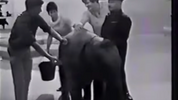Let me give you something to think about.
If you had seen the following statement prior to this pandemic what would you, your leadership team and growth officers had done with it?
"The women's handbags and totes business in the U.S. is down over 20% in the first eight months of 2019, compared with three years ago, according to NPD Group's Consumer Tracking Service".
The honest answer is probably nothing - and so what you might be thinking?.
If you had looked closer than the headline numbers you'll see that many of these key drivers are those pesky Gen Z and millenials, along with a brands ability to 'influence' potential consumers via social media.
For a significant portion of the past decade, customer experience has been signalled as a silver bullet for organisations. A resolution for ailing shareholder value and Net Promoter Score, endorsed by market data — experience-led companies outperformed the S&P 500, 22% of Fortune 100 companies have C-suite customer officers compared to 6% of the Fortune 1000, 81% of marketers told they competed mostly or completely on the basis of customer experience.
Change in behaviour is a constant thing and as a business transformation and growth practitioner the first place I start when asked to review a company and its opportunities is to get the leadership team to answer the following 2 questions;
- Why do you think people previously shopped with you?
- Why do you think less people are shopping with you now?
What seem like innocuous questions regularly create division and confusion amongst leadership teams.
A recent Forrester report titled ‘The Cost of Losing Creativity’ — a survey of 100,000 customers and 300 major brands — stated “customer experience has become homogenised, technology is now table stakes as customers can no longer distinguish one experience from another … every CMO at every company feels mounting pressure to differentiate their brand now that their go-to playbook for performance has run its course.”
If trend report sensationalism is a concern, evidence of ‘experience fatigue’ is not hard to find elsewhere.
In my experience by tracking early signs in changing behaviour with your consumers will give you insights into future disruption in your business.
The expertise I bring is the ability to be able to interpret those behavioural changes in order you can reset the strategy or realign the entire business.
Which is why most companies before, during, and probably post this crisis will revert back to what they did before with marketing and paid media advertising.
Oh, that post about 'Handbag sales' I mentioned earlier in this piece;
"As spending has dipped, the rise of names such as Louis Vuitton may seem surprising. But not so much when you factor in the new options that teens have for getting their hands on these luxury labels".
Analysts say the growth of higher-end handbags can at least partially be attributed to the fact that secondhand sellers are flourishing, especially among younger shoppers.
Is this behavioral change you would have picked up on?
The CMO's go-to playbook for growth has run its course. Customer experiences are stagnant; digital sameness has taken hold; tech spend is skyrocketing; and cost reductions have cut to the quick. Where should CMOs turn to grow their brands?
 unknownx500
unknownx500











